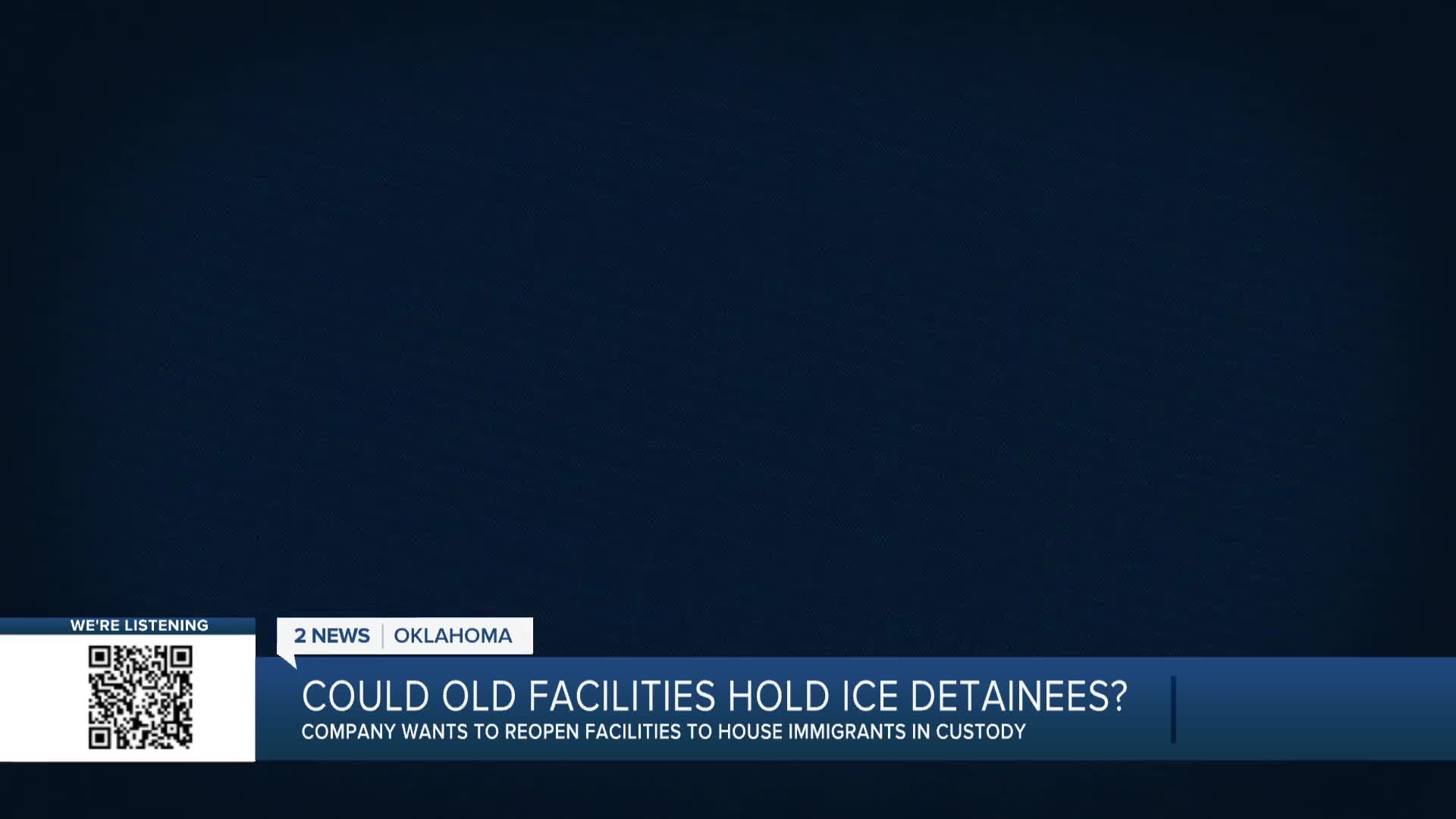TULSA, Okla. — In what is being called a “major milestone" by the Oklahoma Department of Corrections, the DOC takes over operations of the last remaining private prison in the state.
For-profit facilities like Lawton Correctional Facility have a long history of problems—from abuse and overcrowding to understaffing.
But as one door closes, could another open right back up?
According to the Oklahoma Policy Institute, CoreCivic, one of the largest private jail operators, has expressed interest in reopening two facilities in Sayre and Watonga.
As part of the “Big Beautiful Bill,” $45 billion is allocated to open more immigration detention facilities—a significant portion to go to reopen private prisons.
It is already in the works in Leavenworth, Kansas, but there is pushback. A lawsuit calls that jail “an absolute hell hole.”

Scripps News Group interviewed a former corrections officer there, William Rogers, who said an inmate attacked him.
“Too short-staffed, so the only thing I was dependent on was the cameras,” he said.
Tina Shonk was once housed there.
“The lack of feminine hygiene products, the lack of toilet paper, lack of blankets, lack of mats,” she explained.
Oklahoma Policy Institute analyst Gabriela Ramirez-Perez said private prisons in Oklahoma closed due to a history of violence and other problems.
“And we don’t have evidence that things will be different this time,” she said. “We are concerned that the facilities will return and once again repeat history.”
The company tries to entice the community with the allure of jobs and money.
That is why Kansas State Representative Pat Proctor is pushing for the Leavenworth reopening.
“I wish we could just get out of the way and let it happen,” he said.
Ramirez-Perez says those local investments, historically, don’t materialize.
“Studies have shown that whenever private prisons open, particularly in small towns, it drives away other sorts of economic investment,” she said.
“These are for-profit companies; they profit off of keeping people in jail, or in this case detainment,” she said. “And the only thing they have done consistently in Oklahoma is close… which leaves the town to pick up the pieces and have to fill the gap that the private prison wants occupied.”

Ramirez-Perez says a reopening is a real possibility and calls on the public to push for transparency and a voice.
The Oklahoma Policy Institute published ways to get involved.
A spokesperson for CoreCivic sent us the following statement:
Our company stays in regular contact with U.S. Immigration and Customs Enforcement (ICE) and all our government partners to understand their changing needs, and we work within their established procurement processes. It is our policy to respect these processes. Any questions about ICE's processes or timelines should be directed to ICE Public Affairs.
For more than 40 years, CoreCivic has played a limited but important role in America’s immigration system. We know this is a highly charged, emotional issue for many people, but the fact is the services we provide help the government solve problems in ways it could not do alone – to help create safer communities by assisting with the current immigration challenges, dramatically improve the standard of care for vulnerable people, and meet other critical needs efficiently and innovatively. These are problems the American public has made clear they want fixed.
It's important to understand that CoreCivic has a long-standing, zero-tolerance policy not to advocate for or against any legislation that serves as the basis for – or determines the duration of – an individual’s detention. CoreCivic does not enforce immigration laws, arrest anyone who may be in violation of immigration laws, or have any say whatsoever in an individual’s deportation or release. CoreCivic also does not know the circumstances of individuals when they are placed in our facilities. Our responsibility is to care for each person respectfully and humanely while they receive the legal due process that they are entitled to.
Stay in touch with us anytime, anywhere --
- Download our free app for Apple, Android and Kindle devices.
- Sign up for daily newsletters emailed to you
- Like us on Facebook
- Follow us on Instagram
- Watch LIVE 24/7 on YouTube





